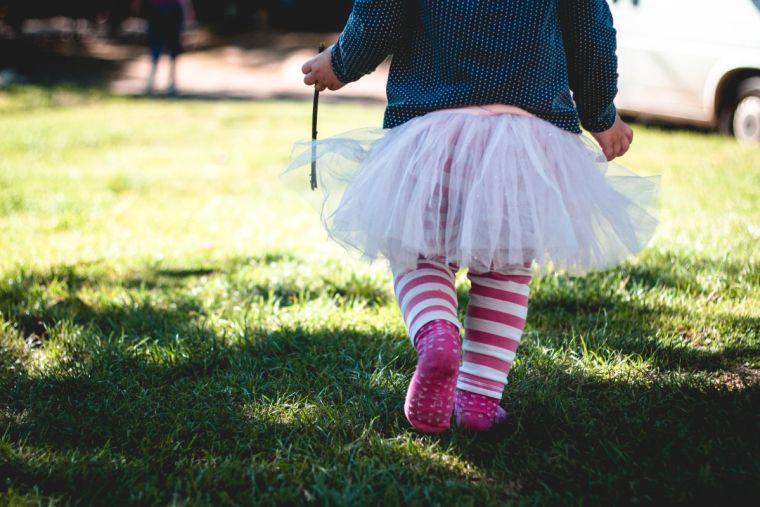Why conservatives should back the Church of England's transgender guidance
It was hard to miss the furore provoked by the Church of England's latest intervention on sexuality and gender yesterday. And judged solely by the reaction from some familiar voices, it seemed the national church might have just abandoned 2000 years of doctrine overnight.
Andrea Minichiello Williams from Christian Concern said that the new advice was 'counter to the church's teaching' and 'unloving'. Times columnist Melanie Phillips said that the church's eagerness to embrace 'gender fluidity' showed how it now promoted 'the notion that secularism and Christianity can flow in and out of each other'.
But in truth, conservative-minded Christians, who like me hold to traditional teaching on gender and sexuality, have nothing to fear from the Co E's guidance on anti-LGBT bullying in schools. In fact, we should strongly welcome the wise counsel it contains.

Contrary to the alarmist noises from some conservatives, the CofE has not suddenly signed up to the core of transgender thinking.
The report actually seeks to stop pupils at CofE schools from having 'their self-worth diminished or their ability to achieve impeded by being bullied' because they are perceived, rightly or wrongly, as being LGBT.
It's hard to imagine why anyone, regardless of their views on gender and sexuality, would be in favour of the bullying of children for any reason, so I'll assume we're all on board at this point still.
The report goes on to reaffirm that the CofE has not changed its teaching on marriage following the legalisation of gay marriage. So far, so good.
It then talks about how schools should create an inclusive, supportive environment for LGBT pupils, including sensitively discussing LGBT issues in the curriculum in age-appropriate ways. At this, it's easy to imagine why some conservative Christians' hackles begin to rise.
But let's unpack what's actually being said here. It is a statement of fact that in every single CofE school there will be some pupils who will come out as gay, bisexual, or trans, or at the very least will be questioning their sexuality and gender identity.
It's also unavoidable that when pupils leave a church school they will enter a society in which they will very frequently come across people who are gay, who are in same-sex relationships, and who live as though they were a different gender to the one they were born into.
The question is, what should a Church school (funded by the state, remember) do about this world we live in? The CofE's answer is simply to ensure LGBT pupils know they are loved and valued by God just as much as any other child, and to educate all children in their care about the realities of people's sexual and gender practice in our post-Christian society.
All the report recommends is that 'same-sex relationships, same-sex parenting and transgender issues may be mentioned as a fact in some people's lives'.
Trying to turn church schools into enclaves of pre-1960s sexual morality would be a short-sighted mistake, and as well as being probably illegal, is not going to advance the gospel or defend traditional Christian theology on sex and gender one bit.
But then we get to the section which has provoked the greatest outrage: where the guidance recommends schools allow pupils to 'play with the many cloaks of identity' without 'judgement or derision'. Maybe a boy might dress up in a tiara or tutu, or a girl could choose to wear a tool belt or firefighter's helmet.

This is not, as some claim, the church kowtowing to those who argue gender is non-binary or that confused primary school-age children should be encouraged to take puberty-blocking hormones and transition.
We have to distinguish between our conviction that there are two genders and that God created everyone at birth in one or the other, and the cultural assumptions that accumulate on top of that good and Biblical truth.
No credible Christian today seriously argues that girls cannot wear 'men's clothes' like trousers or grow up to do 'men's jobs' like construction. So why do we object to boys wearing 'girl's clothes' such as a tutu or enjoying 'feminine' games and activities.
God did not ordain what form of clothes we wear or the things we do, when he divided humanity into two genders. Christians can argue about roles and responsibilities in church and the family, but we must recognise that there is no compelling Biblical argument that says that only girls can wear dresses or skirts. If there was, every bishop who has ever worn clerical robes — and every proud Scot in a kilt — would be in trouble!
In our understandable determination to stand against damaging cultural shifts which try to eliminate gender entirely or suggest it is infinitely malleable, we have to think carefully about what is integral and what is simply traditional. To distinguish between what comes from God, and what is made up by us.
Yes, we should argue against those who want to eradicate the concept of gender. But in doing so let's not cling to outdated conceptions of what it means to be a boy or a girl. As the CofE guidance sensibly notes: 'It may be best to avoid labels and assumptions which deem children's behaviour irregular, abnormal or problematic just because it does not conform to gender stereotypes or today's play preferences.'
There may be a superficial similarity between the Daily Mail's agenda and our own beliefs on gender and sexuality. But it's vital not to get sucked into a right-wing culture war, driven mostly by politics not faith.
As Jesus told his disciples, we are sent out 'like sheep among wolves... Therefore be as shrewd as snakes'. That means declining the opportunity to clamber aboard this bandwagon and instead thinking critically about how to defend God's idea of gender without accidentally endorsing a return to Victorian childhood norms.
Tim Wyatt is a freelance journalist specialising in faith and religion.











